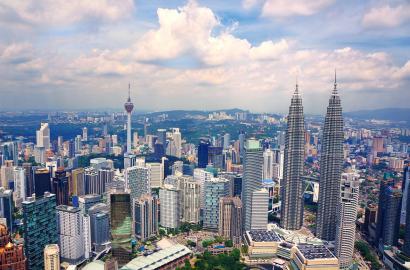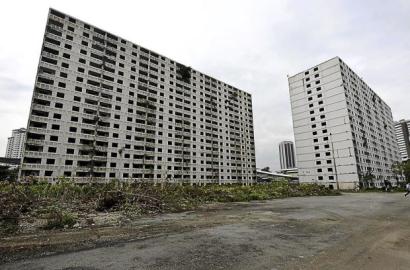Explore Our Exciting New Property Listings Now Available in Prime Locations!
Despite facing economic headwinds from newly imposed US tariffs, Johor Bahru's property market demonstrates resilience, buoyed by significant infrastructure developments and strategic government initiatives.
US Tariffs and Economic Implications
On April 2, US President Donald Trump announced reciprocal tariffs ranging from 10% to 50% on various imports, with Malaysia subjected to a 24% rate. However, a subsequent 90-day pause was declared on April 9, during which a flat 10% tax was imposed on all trading partners except China. Malaysia is actively engaging with the US to seek clarification on tariff derivation and is negotiating for a lower tariff while diversifying its trade partnerships.
Infrastructure Projects Fueling Property Market Stability
According to Samuel Tan, CEO of Olive Tree Property Consultants (Johor) Sdn Bhd, catalyst projects such as the Johor Bahru-Singapore Rapid Transit System (RTS), Elevated Autonomous Rapid Transit (E-ART), Forest City Special Financial Zone, and the Johor-Singapore Special Economic Zone (JS-SEZ) are pivotal in sustaining the property market. These initiatives are attracting manufacturers considering relocation to JS-SEZ due to lower tariffs and operating costs, while maintaining their headquarters in Singapore to benefit from lower corporate taxes.
Progress on Key Developments
In February, Mass Rapid Transit Corp Sdn Bhd and Sunway Bhd formalized a strategic partnership to develop a RM2.6 billion integrated mixed-use and transit-oriented development linked to the Bukit Chagar RTS station. The 4.23-acre project will feature high-rise residences, a retail mall, an educational hub, a health and wellness center, and a hospitality component. Construction began in March, with the park-and-ride facility set to open in November 2026, ahead of the RTS Link’s targeted launch in December 2026.
Additionally, the E-ART system, covering over 50km with 32 stations, is being developed at an estimated cost of nearly RM7 billion, significantly lower than the RM20 billion estimated for an LRT system. Its shorter construction time and lower cost make it a favorable option to complement the RTS Link project, scheduled to commence operation in January 2027.
The Edge Malaysia
Property Market Trends in 1Q2025
During the first quarter of 2025, Johor Bahru's residential market exhibited stable performance across all segments, with some areas experiencing marginal price and rental increases. For instance, two-storey terrace units in Taman Mount Austin, Taman Molek, and Taman Impian Emas saw price increases between RM20,000 and RM50,000. In the rental market, areas like Taman Impian Emas, Horizon Hills, and Taman Bukit Indah showed rental rate increases ranging from RM200 to RM300 per month.
New Project Launches
Six new projects were launched in 1Q2025, including four landed developments and two serviced apartments. Notable launches include the second phase of Greenwoods Residence by Keck Seng (Malaysia) Bhd, Fraser Height @ Gelang Patah by Tropicana Corp Bhd, and SA.YOUNG 3 D’Eco Botanic by Eco World Development Group Bhd. These developments offer a range of housing options, with selling prices starting from RM378,000 to RM1.07 million, catering to diverse market segments.
Outlook
While the US tariffs introduce economic uncertainties, Johor Bahru's proactive infrastructure development and strategic initiatives position its property market for sustained growth. The ongoing projects not only enhance connectivity and urban living but also attract investments, reinforcing the region's economic resilience.
Catatan berkaitan:
Malaysia’s real estate market recorded steady growth across key sectors in the first half of 2025 (1H 2025), supported by strong data centre investments, infrastructure development and resilient domestic demand, according to Knight Frank Malaysia.
Property prices across the Klang Valley are set to rise this year, but the Selangor government has assured that buyers of state housing projects will not face unreasonable price hikes. State executive councillor for housing, Borhan Aman Shah, emphasised that...


